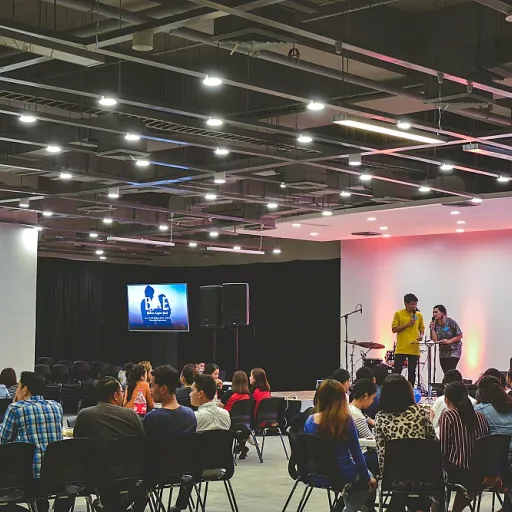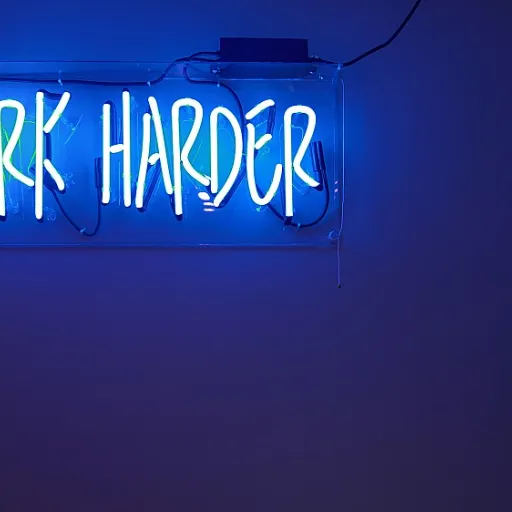
The Role of HR in Enhancing Employee Experience
The Role of Human Resources in Shaping Employee Experience
Human Resources (HR) acts as a pivotal pillar in crafting a positive employee experience. In today’s competitive work landscape, HR professionals stand at the forefront, ensuring that organizations not only attract but also retain top-tier talent. Their role in enhancing the employee journey is multi-faceted, bridging the gap between management and staff.
HR professionals are tasked with designing effective employee engagement strategies that support organization success. Their work involves creating initiatives that foster a cohesive company culture where every team member feels valued and supported throughout their career development.
Performance management is another crucial element where HR plays a key role. By implementing effective systems that recognize hard work and promote growth, HR professionals contribute significantly to employee satisfaction. Moreover, in the age of remote work, HR’s responsibilities have expanded to ensure teams remain connected and supported, utilizing social media and virtual tools to maintain engagement.
The journey of people within an organization is under constant evaluation by HR, aiming to boost morale and productivity through various touchpoints. From onboarding to professional development opportunities, HR ensures that every day in the work environment contributes positively to the overall employee experience.
An appreciation day or resource professional day offers an occasion to reflect on the critical role HR plays in this ecosystem. It’s a time to recognize their hard work and contributions to the organization’s success. Whether through national or international events, these days provide an opportunity to celebrate the dedication of those who work tirelessly behind the scenes.
Challenges Faced by HR Professionals
Overcoming Hurdles in Human Resources
In the landscape of modern organizational development, HR professionals face a myriad of challenges that impact their ability to enhance employee experience. Addressing these challenges requires a proactive approach and innovative solutions to bolster employee engagement across diverse teams. Organizations today are navigating an evolving work environment, where remote work has become a staple for many. This shift poses challenges in maintaining the same level of employee connection and team cohesion as in in-person settings. HR professionals are tasked with implementing strategies that ensure seamless communication, fostering a strong company culture even when teams are dispersed. Moreover, HR departments must adapt to changes in workforce expectations. Employees today prioritize professional development, career growth opportunities, and work-life balance more than ever before. Human resources must tailor their employee engagement and support programs to align with these needs, ensuring employees feel valued and are given avenues for professional growth. Another significant challenge is ensuring diversity and inclusion within the workplace. Creating an inclusive environment isn't just about recruitment; it's about nurturing a culture that celebrates differences and encourages diverse perspectives. This requires strategic commitment from HR to drive change, educate teams, and implement policies that support a diverse workforce. Performance management is yet another domain where HR professionals must demonstrate expertise. Effective management systems are vital in recognizing hard work and setting clear paths for career progression. By utilizing data-driven insights, HR can provide actionable feedback, supporting employees in their professional journey. To surmount these challenges, continuous learning and development for HR teams are essential. Staying updated with the latest trends and strategies in human resources ensures professionals can offer innovative approaches to fostering organizational success. It is through celebrating hard work and recognizing the importance of HR professionals, especially on days like International Human Resource Professional Day, that organizations can reflect on the impact of their support structures. Ultimately, HR's ability to overcome challenges directly influences the employee experience and organizational culture. A dedicated, resourceful HR team is indispensable in navigating the complexities of modern employment, paving the way for sustained success and employee satisfaction.Innovative HR Strategies for Employee Engagement
Fostering Engagement through Creative HR Strategies
Cultivating a dynamic and engaging work environment is critical for organizations looking to retain talent and boost employee satisfaction. Human resources professionals have increasingly turned to innovative strategies to promote employee engagement, especially in today's varied working arrangements, including remote work setups. While traditional methods like performance management and professional development remain valuable, contemporary approaches focus on creating meaningful human connections and aligning employees with the organization’s mission. Here are some innovative ways HR teams are fostering engagement:- Employee Feedback Systems: Regularly collecting feedback from employees can offer invaluable insights. By recognizing employee voices, HR professionals can tailor engagement initiatives to meet the needs and expectations of their workforce.
- Personalized Professional Development: With continuous learning being integral to career growth, HR professionals are offering customized learning paths for individuals. Supporting ongoing career development not only enhances employee performance but also boosts morale and loyalty.
- Virtual Team Building: As organizations embrace hybrid work models, HR teams are crafting creative virtual experiences to solidify team bonds remotely. These initiatives maintain a sense of connectedness and unity, integral to employee engagement.
- Recognition and Appreciation Programs: Although recognizing employees' hard work has always been a staple, broadening these endeavors to appreciate achievements on platforms like social media can amplify an individual's contribution to the company's success.
The Importance of Continuous Learning in HR
Fostering a Culture of Continuous Learning
In today's fast-paced world, the need for continuous learning cannot be overstated. Human resources (HR) professionals are at the forefront of this initiative, ensuring employees have access to professional development opportunities throughout the year. By supporting a culture of learning, organizations not only improve performance management but also enhance employee engagement, creating environments where teams can thrive. HR plays a crucial role in the career development of individuals within an organization. They provide resources and support necessary for employees to embark on their learning journeys. This can include seminars, workshops, and access to learning platforms, whether employees are working remotely or in-office. Continuous professional development is a vital aspect of HR strategies, helping organizations to remain competitive. When teams are upskilled and reskilled, they contribute more effectively to the company's goals. Professionals in HR employ innovative strategies to identify skill gaps and provide training tailored to those needs, ensuring the organization’s success. Moreover, embracing continuous learning promotes a positive company culture. It encourages employees to take ownership of their careers, fostering an environment of growth and innovation. HR professionals recognize the importance of this mindset, actively promoting training programs and special development days. In an era where technology evolves rapidly, and the work landscape continually shifts, HR's dedication to lifelong learning remains essential. Professionals celebrate these efforts nationally and internationally, underscoring their commitment to supporting human capital. Through social media campaigns and events like the professional day, the hard work of HR teams is acknowledged and appreciated, reinforcing the values of development and progress within organizations.HR's Role in Promoting Diversity and Inclusion
Championing Diversity and Inclusion in the Workplace
In today's rapidly evolving work environment, human resources has a pivotal role in promoting diversity and inclusion within organizations. This commitment not only enhances employee experience but also drives company success. HR teams are tasked with creating an inclusive culture where every employee feels valued and respected. This involves implementing policies that support diverse employee backgrounds and encourage equal opportunities for career advancement. Here are some areas where HR professionals focus their diversity and inclusion efforts:- Policy Development: Establishing clear guidelines that prevent discrimination and promote fairness within the workplace.
- Training Programs: Offering workshops and resources to educate teams on the importance of inclusivity and how to embrace it in their daily work.
- Recruitment Strategies: Implementing hiring practices that seek candidates from varied backgrounds, ensuring a broad range of perspectives and skills are represented in the organization.
- Employee Support: Providing resources and support systems such as employee resource groups that foster a sense of belonging and community within the company.
Celebrating Human Resources Professional Day
Honoring the Pillars of Organizational Success
In the ever-evolving workplace landscape, the role of human resources professionals has expanded far beyond traditional functions, becoming vital to organizational success. As we delve into the importance of this vocation, it's crucial to acknowledge the day dedicated to celebrating these professionals who work tirelessly to enhance the employee experience. The annual celebration of Human Resources Professional Day is a chance to recognize and appreciate the hard work and dedication of HR teams. Each day, they champion employee engagement, promote a positive company culture, and facilitate professional development across the organization. This day is also about acknowledging the strategic initiatives set forth by HR professionals in navigating complex issues like remote work and performance management. While there are countless ways to celebrate this day, here are a few ideas:- Host a special company event or team lunch to honor HR professionals and their contributions to the organization.
- Utilize social media to publicly appreciate the hard work and dedication of HR teams, sharing stories of impactful moments and successes.
- Encourage employees to personally thank HR professionals for their support and the role they play in career development.
- Highlight the importance of diversity and inclusion initiatives led by HR, reminding everyone of the profound impact on workplace harmony.
- Offer opportunities for continuous learning and development, underlining the significance of HR's role in championing these efforts.













